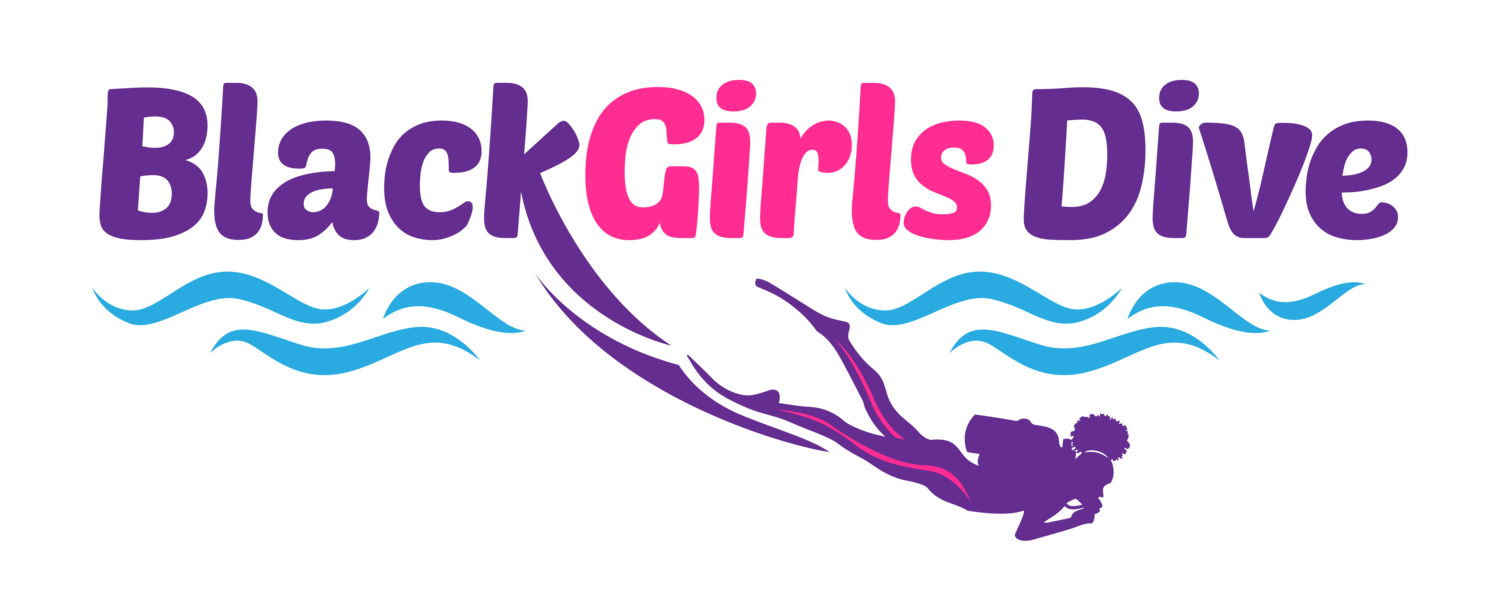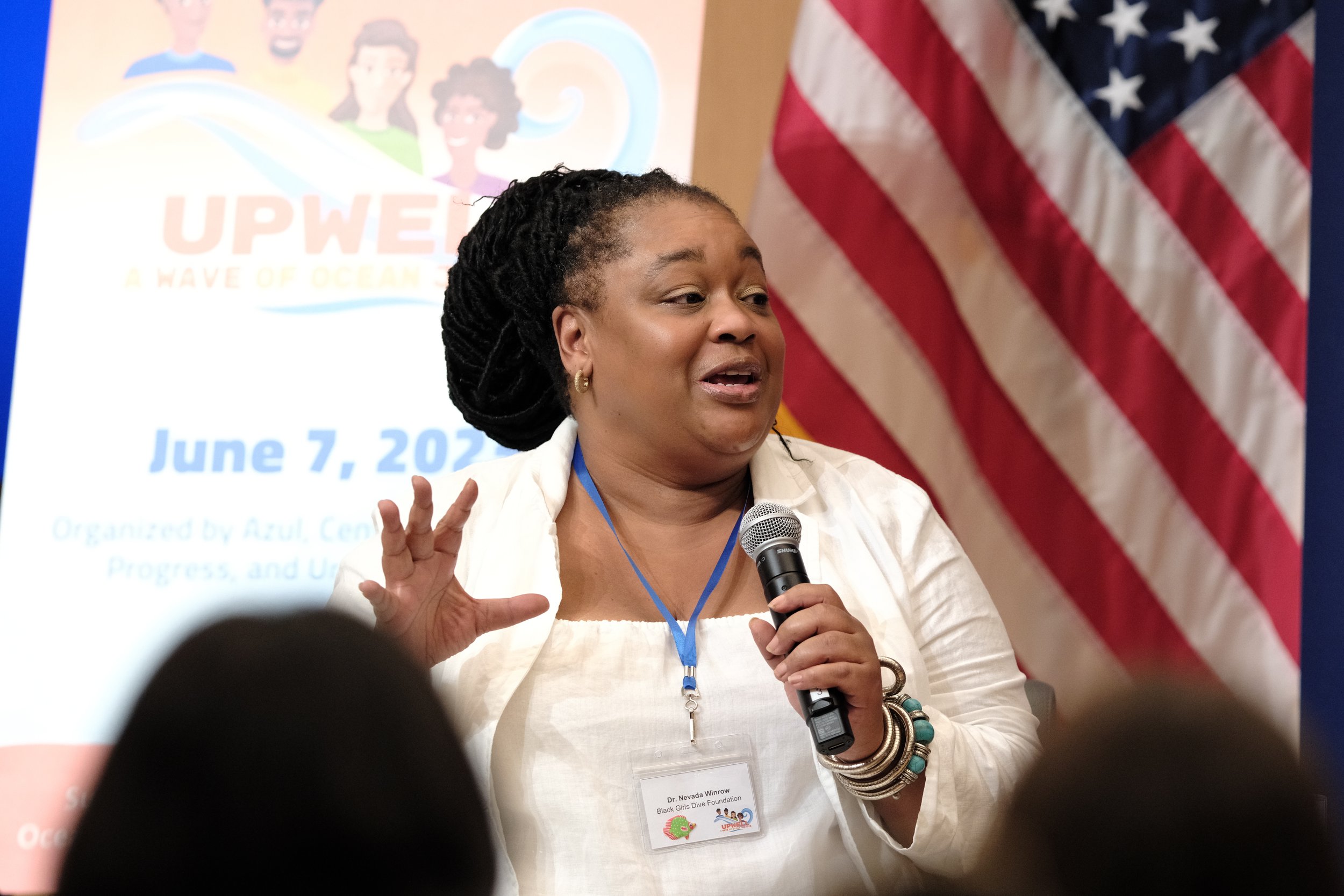Event centered the voices of of historically excluded and marginalized communities in ocean conservation discussion
CONTACTS
Geoffrey Nolan, Earthjustice, gnolan@earthjustice.org, (202) 740-7030
Betsy López-Wagner, López-Wagner Strategies, Betsy@equitablecomms.com, (708) 717-9408
Maeve Stewart, López-Wagner Strategies, Maeve@equitablecomms.com, (650) 714-9583
Sam Hananel, Center for American Progress, shananel@americanprogress.org
WASHINGTON, D.C. —
Yesterday, Azul, the Center for American Progress, and Urban Ocean Lab hosted a symposium on the rising tide of justice and equity in ocean policy. The event featured the experiences and voices of historically marginalized communities in ocean conservation discussions. These communities are disproportionately affected by the impacts of climate change, including rising sea levels, intensifying storms, pollution, overfishing, loss of habitat and biodiversity, and coastal gentrification.
Watch a recording of the full event: Upwell: A Wave of Ocean Justice.
Panelist Quotes From the Event:
From the keynote “Freedom of Association at Sea: Advancing Justice in the Distant-Water Fishing Industry:”
“To effectively address illegal, unreported, and unregulated (IUU) fishing and forced labor at sea, it is critical for environmental and labor rights advocates to work together to hold the distant water fishing industry accountable. IUU fishing vessels continue to profit billions of dollars off of the exploitation of migrant fishers, who are often forced to stay isolated at sea for months. Advancing justice at sea requires that these fishers have access to Wi-Fi on board distant water vessels so that they can exercise their right to freedom of association and report labor abuses — building power that can help drive accountability at deep sea overall,” said Johanna Lee, Staff Attorney at Global Justice Watch.
On the next generation of ocean justice leaders:
“When I think about conservation diversity, it starts in elementary, middle school, and high school. One thing we need to think about is how we can create safe and comfortable environments specifically for Black and Indigenous students. More times than not, one of the biggest barriers we face when we say we want to become a scientist or a marine biologist or a civil engineer, we are met with folks in our schools who tell us we can’t do that. This shouldn’t be the reality for our kids,” said Charitie Ropati, education and environmental activist.
“It is not as easy as saying ‘just get a job in conservation’, especially for early career people of color, who maybe have not had exposure, or mentors in higher places that will pull them up and help them with opportunities in that way. I get really excited when I have people say that they have seen me as a RAY Fellow, or that I majored in conservation biology, and they want to ask me questions about it. A lot of folks are excited to lend a hand and connect people that feel like their voices are not heard or the opportunities are not there to the networks that we have had the privilege of building, due to other people reaching down and helping us, too,” said Olivia Lopez, Senior Specialist in Climate Policy at Ocean Conservancy.
On defining ocean justice and making ocean policy more just:
“In law school, what you learn is that there are terms of art and there are specific benefits that flow with a particular word. The word can be as small as “but” or “and,” “may” or “shall.” What you also realize is how deep colonization goes — when you are using someone else’s words and it would not mean that in your community, but it means that in a statute. You really understand how rigid language can be. … When the community determines that they have their own word, and an understanding of what it means, you cannot stop them. I saw a limitation of language in the law, I see the power of language in the community,” said Colette Pichon Battle, Vision and Initiatives Partner at Taproot Earth.
“There are communities that can do this, have been doing this, and will continue to. So we have to resource them, we have to ask them, and then believe them when they tell us what the answers are. And then we have to do it,” said Helen Smith, Policy Advocate at Creation Justice Ministries.
“There are many state legislators nationwide who have been working hard to improve historically marginalized communities’ access to ocean resources and expand opportunities to influence ocean policy. Upwell provided an opportunity for me to share information about the state lawmakers in our member network whose legislative efforts advance equitable ocean policies in their states,” said Carlos Ochoa, Ocean Program Manager at the National Caucus of Environmental Legislators (NCEL).
On joy in the ocean:
“Don’t forget to go play in the ocean or nature whenever you get the chance! This work is hard and depressing and we are constantly thinking about the existential issues of our life on this planet and its role. If I couldn’t go surf or fish, or whatever I choose to do to play in the ocean on any given day, I could not do this job…. Don’t forget to enjoy the ocean that you’re working to protect,” said Anupa Asokan, Senior Ocean Advocate at Natural Resources Defense Council.
“Our goal is helping these young ladies build their STEM identity through conservation awareness, so I’m a firm believer that you have to start them young, teaching them very young on how to care for the earth and have them pay it forward. We are also exposing them to professionals in the marine sciences. A lot of people do not understand that field experience is mostly unpaid. So if you are coming from an underserved community, and you have to think about taking a part-time job to support my family or pursuing my dreams through this field experience, but having expenses and not getting paid. That is a hard decision to make,” said Dr. Nevada Winrow, Cofounder at Black Girls Dive Foundation.
Dr. Nevada Winrow
“Providing a safe space for young ladies to explore their STEM identity opens a lighted path of opportunity.”
ADDITIONAL RESOURCES
ABOUT EARTHJUSTICE
Earthjustice is the premier nonprofit environmental law organization. We wield the power of law and the strength of partnership to protect people's health, to preserve magnificent places and wildlife, to advance clean energy, and to combat climate change. We are here because the earth needs a good lawyer.








